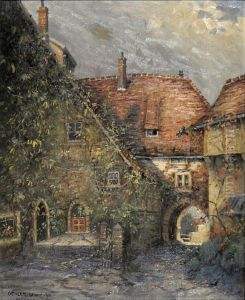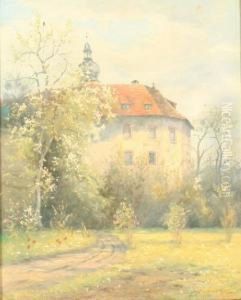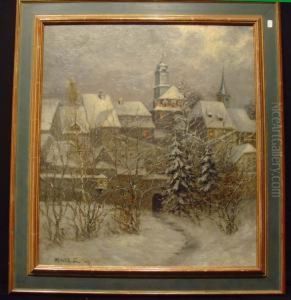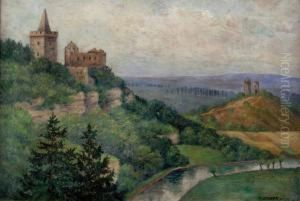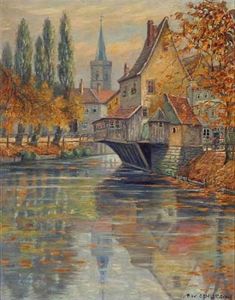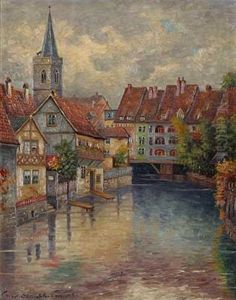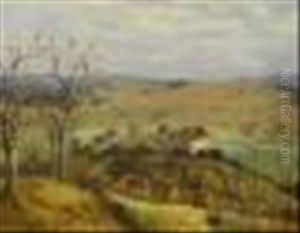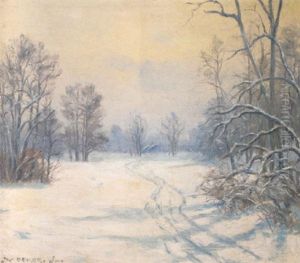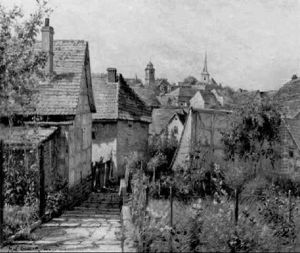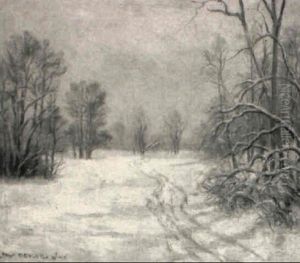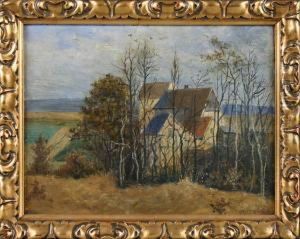Max Oehler Paintings
Max Oehler was a German artist and philosopher, born in 1875 in the Kingdom of Saxony, which was then part of the German Empire. He was not only known for his contributions to the world of art but also for his deep philosophical insights, particularly in relation to the works of his famous uncle, Friedrich Nietzsche. Oehler’s life and work were significantly influenced by Nietzsche’s philosophies, and he dedicated a substantial part of his career to preserving and promoting Nietzsche's legacy.
Oehler's artistic endeavors were diverse, encompassing both visual arts and writing. As an artist, he was involved in painting and drawing, though his artworks did not gain as much recognition as his philosophical writings and efforts related to Nietzsche's works. His philosophical leanings were deeply entwined with his artistic output, often reflecting themes of existentialism and the questioning of traditional values, which were central to Nietzsche's own philosophical inquiries.
Apart from his artistic pursuits, Max Oehler played a crucial role in the establishment and maintenance of the Nietzsche Archive. His commitment to preserving Nietzsche’s legacy involved the meticulous gathering and editing of Nietzsche’s manuscripts and letters, a task that contributed significantly to the study and understanding of Nietzsche’s philosophy in the 20th century and beyond. Oehler's dedication to this cause was instrumental in shaping the posthumous reception and interpretation of Nietzsche's work, ensuring that his philosophical ideas continued to be studied and appreciated.
Despite his efforts and contributions, Max Oehler's life was marked by the tumultuous events of early 20th-century Germany, including both World Wars. His association with Nietzsche’s legacy also meant that his work was subject to the political and ideological shifts of the time, particularly during the Nazi regime, which sought to appropriate Nietzsche’s philosophy for its own ends. Oehler's navigation through these complex times reflected the challenges faced by intellectuals in maintaining the integrity of philosophical ideas against the backdrop of political exploitation.
Max Oehler passed away in 1943, leaving behind a legacy intertwined with that of his uncle Friedrich Nietzsche. While his artistic achievements may not have garnered widespread fame, his philosophical writings and his crucial role in the preservation of Nietzsche’s legacy have made a lasting impact on the study of German philosophy and the reception of Nietzsche’s ideas. Through his dedication to the Nietzsche Archive, Max Oehler ensured that future generations would continue to engage with and debate the profound philosophical questions raised by his uncle.
